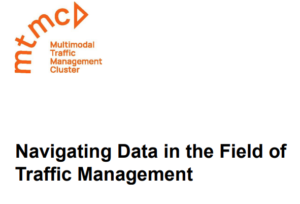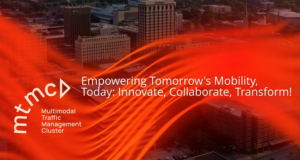Multimodal Traffic Management Cluster
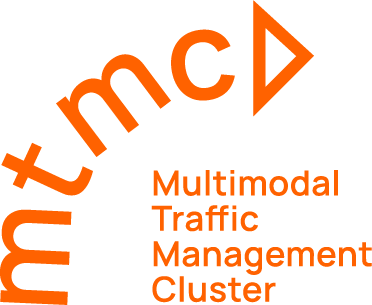
From 2022 to December 2023, four Horizon 2020 projects – TANGENT, DIT4TRAM, FRONTIER, and ORCHESTRA – came together to form the 4FRONT Cluster, fostering innovation in traffic management and multimodal transport systems.
In 2024, the Cluster expanded with the inclusion of three additional projects – ACUMEN, SYNCHROMODE, and DELPHI – evolving into the Multimodal Traffic Management Cluster (MTMC).
Today, the MTMC unites seven projects under a shared vision for advancing sustainable and efficient transportation.

AI-aided deCision tool for seamless mUltiModal nEtwork and traffic management
ACUMEN aims to establish a technological and methodological framework that integrates state-of-the-art mobility modelling, data processing, prediction, and advanced visualization capabilities. By embracing the concept of Digital Twins (DT) and adopting a Hybrid Intelligence (HI) paradigm, ACUMEN aims to develop intuitive decision-support tools for smart cities. These tools facilitate effective collaboration between humans and AI, resulting in innovative services that benefit citizens.
The consortium of the project is led by Aalto University (FI) and brings together 17 partners from 8 EU Member States as well as Switzerland.
For more visit: https://acumen-project.eu/

feDerated nEtwork of pLatforms for Passenger and freigHt Intermodality
DELPHI is a Horizon Europe project that brings together a complementary consortium of 16 partners (+1 associated partner and 1 affiliated entity), from 8 EU and associated countries with the view to addressing the growing challenges of passenger and freight mobility. Recognizing the complexity of stakeholder landscapes, fragmented transportation systems, and the need for secure data sharing, DELPHI focuses on the strategic dimension of integrating passenger and freight transport in a single federated system, working towards integrating sectors, harmonizing data, and leveraging advanced methodologies, to transform transportation systems, for a sustainable future.
Over the course of the project’s three-year timeframe, there will be a total of four trials conducted across the participating transportation networks located in Spain, Greece, and Romania. These trials aim to facilitate effective preparation and seamless integration of systems and will involve continuous monitoring of progress to ensure smooth functioning and interconnectivity.
For more visit: https://delphi-project.eu/
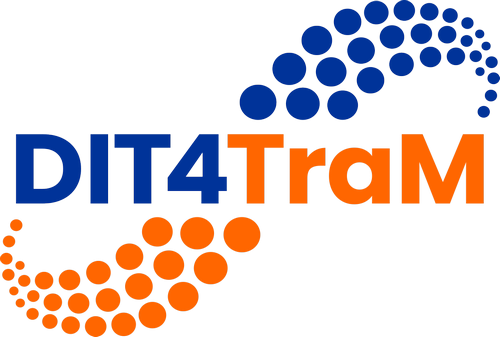
Distributed Intelligence & Technology for Traffic & Mobility Management
In the DIT4TraM project, Distributed Intelligence and Technology for Traffic and Mobility Management, twenty knowledge institutions, companies and governments are investigating for the first time whether this ‘swarm intelligence’ approach is feasible for traffic and transport. The project’s focus is on individual travelers, connected cars, smart bicycles, and intelligent traffic control systems. Simply put, DIT4TraM is exploring how these agents can communicate and interact locally in such a way that they automatically contribute to the greater goal of a smooth and safe traffic flow. To test and develop all new knowledge and insights in practice, six pilot studies in four EU countries are organized: in France (Bordeaux), Greece (Glyfada and Athens), the Netherlands (Amsterdam and Utrecht), and Spain (AP-7 freeway).
For more visit: https://dit4tram.eu/

Next generation network and traffic management for future mobility
The EU-funded FRONTIER project brings together 19 high-profile partners from all over Europe to empower a seamless transition to a new era in transport management. Different cutting-edge systems and solutions are being leveraged to create the ultimate integrated network and traffic management systems, that will favour driverless automation, seamless transfer among different modes of transport, better collaboration among different stakeholders, reduction of accidents and transport emissions, in this way contributing to better standard of living to Europe’s citizens.
For more visit: https://www.frontier-project.eu/home-one
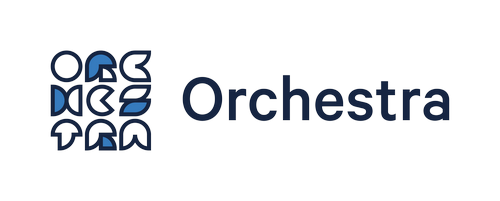
Orchestrating multimodal transport for more efficient and resilient transport services
ORCHESTRA aims to provide European policymakers, public authorities, transport providers, and citizens with both new knowledge and technical and organisational solutions to enhance collaboration and synchronising of operations within and across transport modes, enhancing safety and reducing emissions. The project requires insight and knowledge from a multidisciplinary perspective, from different transport domains, of diverse representatives from transport operators, industry to policymakers, including citizens, communities, and scientists. The project’s solutions will be prototyped and evaluated in two Living Labs. This will provide concrete evidence on how technological capabilities and organisational practices can be integrated to optimise transport through selected use cases. Demonstrations include coordinating freight and passenger flows across modes in a dynamic, safe, secure, and sustainable manner.
For more visit: https://orchestra2020.eu/
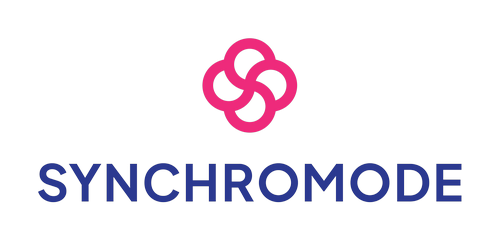
Advanced traffic management solutions for synchronized and resilient multimodal transport services
SYNCHROMODE is a three-year Horizon Europe (2023-2026) project that will deliver a suite of services for improving the overall transport network management, fostering the coordination of different agents involved in the provision and control of the transport services. SYNCHROMODE’s three innovative services are a transport network-wide data exchange system, a cooperative dashboard for real-time monitoring, and a resilient multimodal transport network support tool. The project aims to develop data driven ICT tools for improving the management of transport operations from a multimodal perspective and managing the overall transport network as a whole. SYNCHROMODE will provide to transport managers new predictive and network optimization capabilities for balancing the transport supply and demand, and capable of reacting to different types of events. Join us in shaping the future of traffic management.
For more visit: https://www.synchromode.eu/

Enhanced Data Processing Techniques for Dynamic Management of Multimodal Traffic
TANGENT is a project funded by the European Commission under the Research and Innovation Programme, which started in September 2021 and will end in August 2024. The project is coordinated by Universidad de Deusto / Deustuko Unibertsitatea, based in Bilbao, Spain. TANGENT leads to the development of new complementary tools for optimising traffic operations in a coordinated and dynamic way from a multimodal perspective and considering automated / non-automated vehicles, passengers, and freight transport.
For more visit: https://tangent-h2020.eu/
Our Shared Goals
The MTMC is committed to driving the future of traffic management and multimodal transport through six key objectives:
- Develop tools for dynamic transport demand management & supply optimisation
- Create innovative architecture and concepts of operations for an efficient, resilient and adaptable multi-modal network and traffic management systems
- Use innovative data collection and fusion techniques, leveraging on existing standards and methods for data exchange
- Develop multi-actor organisational and business models with shared responsibilities between different traffic management stakeholders
- Assess the impact of new technologies, including smart infrastructure and connected and automated vehicles
- Design and calibrate arbitration models for complex network and traffic management scenarios and multi-actor settings, including disaster management
Further Partnerships

Enhancing Integration and Interoperability of CCAM eco-system
IN2CCAM consortium, according to the vision of Horizon Europe framework programme from 2021-2027 that aims to accelerate the implementation of innovative CCAM technologies and systems for passengers and goods, intends develop, implement and demonstrate innovative services for connected and automated vehicles, infrastructures and users.
The goal is providing benefits to all citizens by implementing a full integration of CCAM services in the transport system. The main expected positive impacts for society are: i) safety (i.e. reducing the number of road accidents caused by human error; ii) environment (i.e. reducing transport emissions and congestion by smoothening traffic flow and avoiding unnecessary trips); iii) inclusiveness (i.e. ensuring inclusive mobility and good access for all). To this aim the approach is based on the implementation and integration of enhanced Physical, Digital and Operational Infrastructures to enrich CCAM services and increase safety and traffic efficiency.
A set of physical, digital and operational solutions will be proposed and implemented in 4 Lead Living Labs (LLs): Tampere (Finland), Trikala (Greece), Turin (Italy) and Vigo (Spain). Moreover, two Follower LLs will collaborate in the design phase by providing ideas and data assessed by simulation test and validation: Bari (Italy) and Quadrilatero (Portugal).
For more visit: https://in2ccam.eu/
Get Involved
Follow our LinkedIn page to stay updated on this transformative journey. Discover opportunities to contribute and learn more about how the MTMC is reshaping the future of multimodal traffic management. Join us as we pave the way for smarter, more sustainable transport systems!



